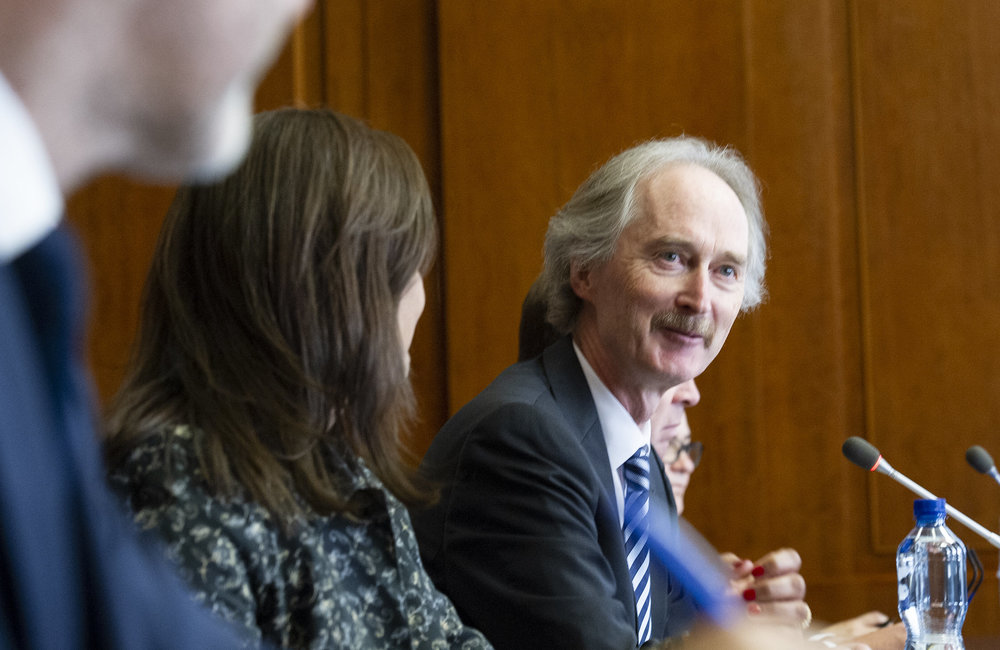On Sunday, the UN envoy to Syria, Geir Pedersen, held a meeting with Iranian Foreign Minister, Hossein Amir Abdollahian. This meeting is part of a series of shuttle meetings that Pedersen has been conducting recently, which have garnered significant attention. These meetings are taking place within the context of two distinct tracks in Syria.
The first track pertains to the evolving relationship between Arab states and the Assad regime. The second track involves a quadrilateral dialogue between Turkey, Iran, Russia, and the Syrian regime. Efforts are being made to foster a constructive dialogue between Ankara and Assad.
Pedersen took to Twitter on Sunday to announce the conclusion of “comprehensive discussions” with Iranian Foreign Minister Abdollahian, Ambassador Khaji, and other high-ranking officials, focused on Syria. He expressed appreciation for Iran’s assessment of recent diplomatic developments in Syria and the wider region, as well as its support for the resumption of the UN-facilitated Constitutional Committee’s work.
Pedersen said he was discussing Syrian issues with senior Turkish officials.
Following his engagements with senior Russian officials, Geir Pedersen emphasized the significance of coordination between the United Nations and the countries involved in the Astana negotiations. He highlighted the importance of this coordination for the resumption of the Constitutional Committee’s work and the advancement of the overall political process.
The future resumption of the Constitutional Committee’s work remains uncertain, particularly in light of recent statements from Amman that allude to an activation clause involving the Syrian regime.
Pedersen also expressed gratitude for recent phone conversations with Saudi Foreign Minister Faisal bin Farhan, Egyptian Foreign Minister Shoukry, and Jordanian Foreign Minister Safadi. He stressed the importance of close coordination between the United Nations and Arab countries to establish an agreement on future steps.
With the best interests of the Syrian people at heart, Pedersen affirmed the UN’s commitment to collaborating with all stakeholders, including the Syrian parties, Arab states, the sponsors of the Astana negotiations, and Western countries. Their collective aim is to initiate genuine confidence-building measures and foster a renewed political process in accordance with Security Council resolution 2254.
Pedersen is credited as a key proponent of the “step-for-step” approach, which has paved the way for Arab countries to gradually restore their relations with the Syrian regime.
Under the “step-for-step” policy, Washington and its allies consider lifting or easing certain sanctions on the regime. In return, Moscow plays a crucial role in exerting pressure on the Syrian regime to take meaningful steps toward advancing the stalled political solution process, while also avoiding military escalation.
This article was translated and edited by The Syrian Observer. The Syrian Observer has not verified the content of this story. Responsibility for the information and views set out in this article lies entirely with the author.


